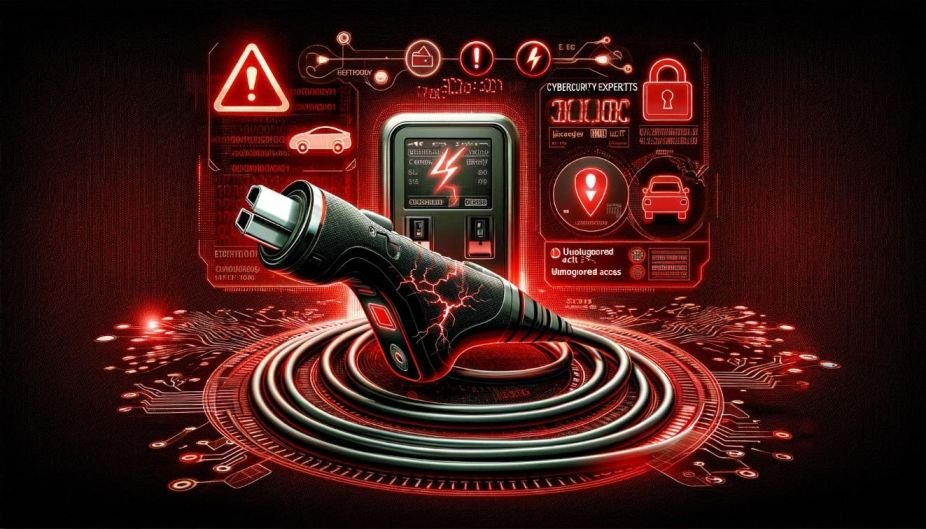This story was co-published with Grist. In the evolving world of electric vehicles (EVs) and their infrastructure, cybersecurity has become a critical concern. This comprehensive look dives into the vulnerabilities and efforts to fortify EV charging stations against potential cyber threats.
Unexpected Hacks at EV Charging Stations
Sky Malcolm’s experience at an Indiana charging station revealed a bizarre hack displaying a meme of President Biden. This incident is not isolated; similar hacks have occurred globally, from anti-Putin messages in Russia to inappropriate content in England. These incidents, though seemingly harmless, point to larger security risks in EV infrastructure.
The Growing Concern of Cybersecurity in EV Charging
As the world accelerates the shift to electric vehicles, the security of charging stations has come under scrutiny. Researchers have discovered various vulnerabilities, from customer data exposure to potential risks to Wi-Fi networks and even power grids. This has prompted a rush to develop and implement robust security measures and standards.
Research Findings on EV Charger Vulnerabilities
Studies have identified multiple severe vulnerabilities in EV charging systems. These range from tracking users to compromising home Wi-Fi networks and the potential to deploy malware. For instance, a British firm, Pen Test Partners, found critical flaws in popular EV charger models, such as software bugs and firmware vulnerabilities.
Implications of Vulnerabilities
The implications of these vulnerabilities are vast. Hackers could access vehicle data, customer credit card information, and, most alarmingly, manipulate chargers to destabilize electricity networks. This risk is heightened as many users leave their cars connected to chargers, potentially allowing hackers to control the power demand en masse.
Lessons from Recent Cyber Attacks
The Colonial Pipeline hack in 2021 offers a glimpse into the potential chaos of a coordinated cyber attack on critical infrastructure. This incident led to a nationwide fuel shortage and a significant ransom payout, underscoring the severity of such threats.
Consumer and Manufacturer Safeguards
Ken Munro of Pen Test Partners advises consumers to avoid connecting home chargers to the internet. Manufacturers bear the brunt of responsibility for securing these devices. Companies have been generally responsive to vulnerabilities identified by researchers, but the industry needs a more systematic approach than the current reactive one.
Government and Industry Response
The US government, recognizing these risks, has included cybersecurity as a key component of its electric vehicle infrastructure expansion. The Federal Highway Administration’s new rule mandates state-implemented cybersecurity strategies for chargers funded under the infrastructure law. However, this regulation does not cover all existing or privately installed chargers, leaving a significant gap in security.
The Need for Regulatory Standards
Experts like Jay Johnson from Sandia National Laboratories advocate for regulatory standards similar to those for healthcare cybersecurity. The National Institute of Standards and Technology is working on frameworks that could shape future regulations, and other countries, like the UK, have already implemented stringent requirements for EV chargers.

Moving Towards a Secure EV Future
The industry is progressing towards better security, but the pace is slower than ideal. The goal is not to create fear but to apply consistent pressure for improvements in EV cybersecurity. This movement is vital for building trust in the growing EV infrastructure and ensuring its resilience against potential cyber threats.
In conclusion, as electric vehicles become more prevalent, the cybersecurity of their charging infrastructure is paramount. This dynamic sector calls for continuous vigilance, innovation, and collaborative efforts between manufacturers, consumers, and governments to safeguard our digital and physical environments. Stay informed and proactive about the latest in EV cybersecurity with XpressHack.com, your guide to a secure digital future.